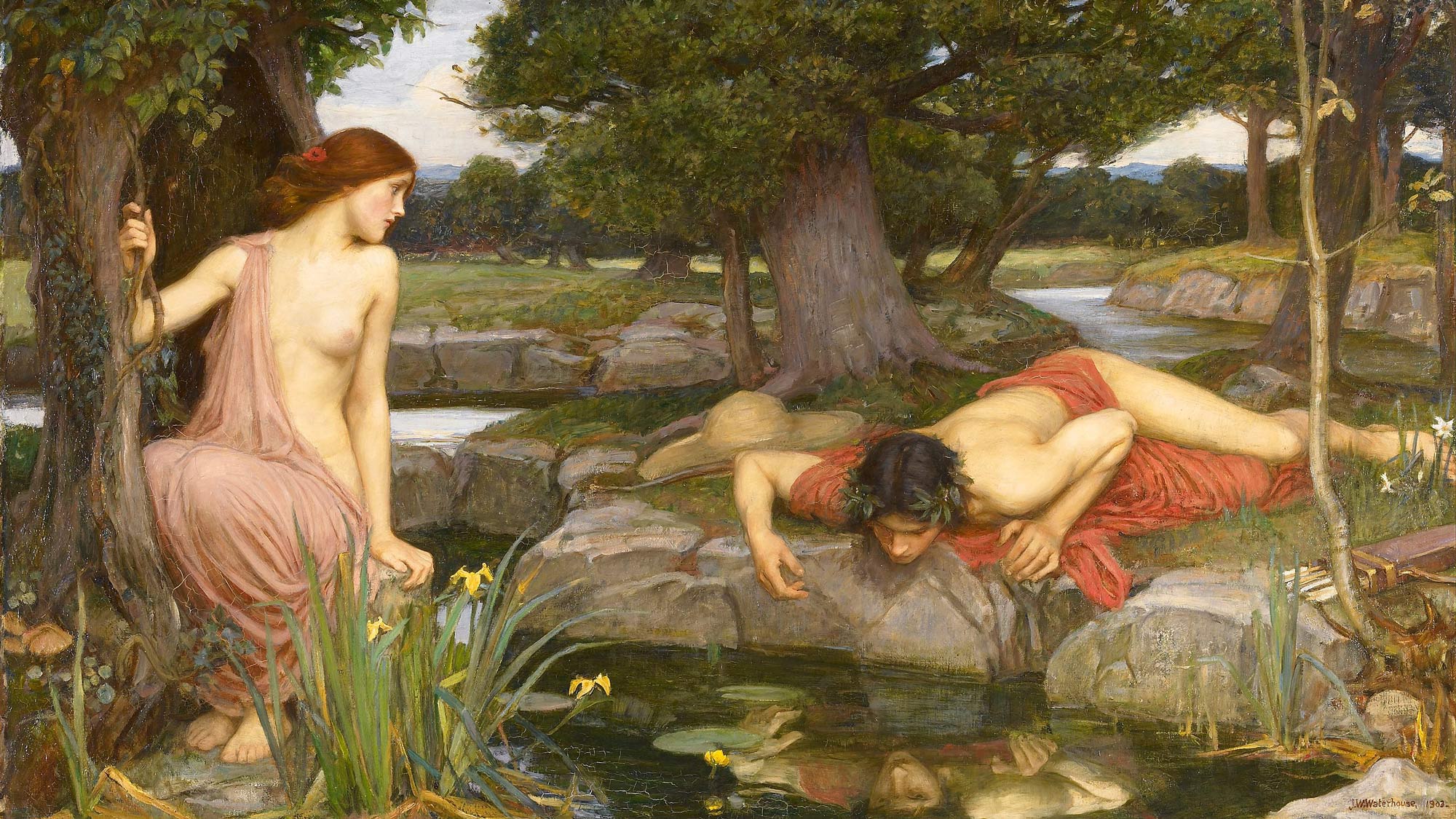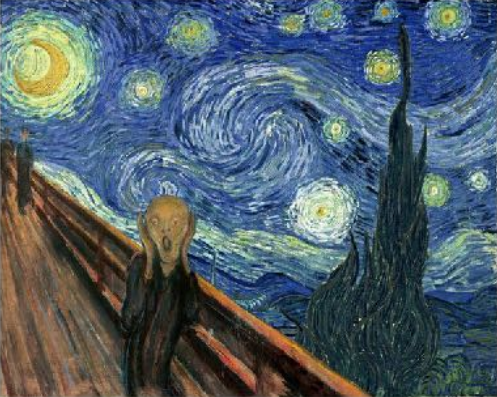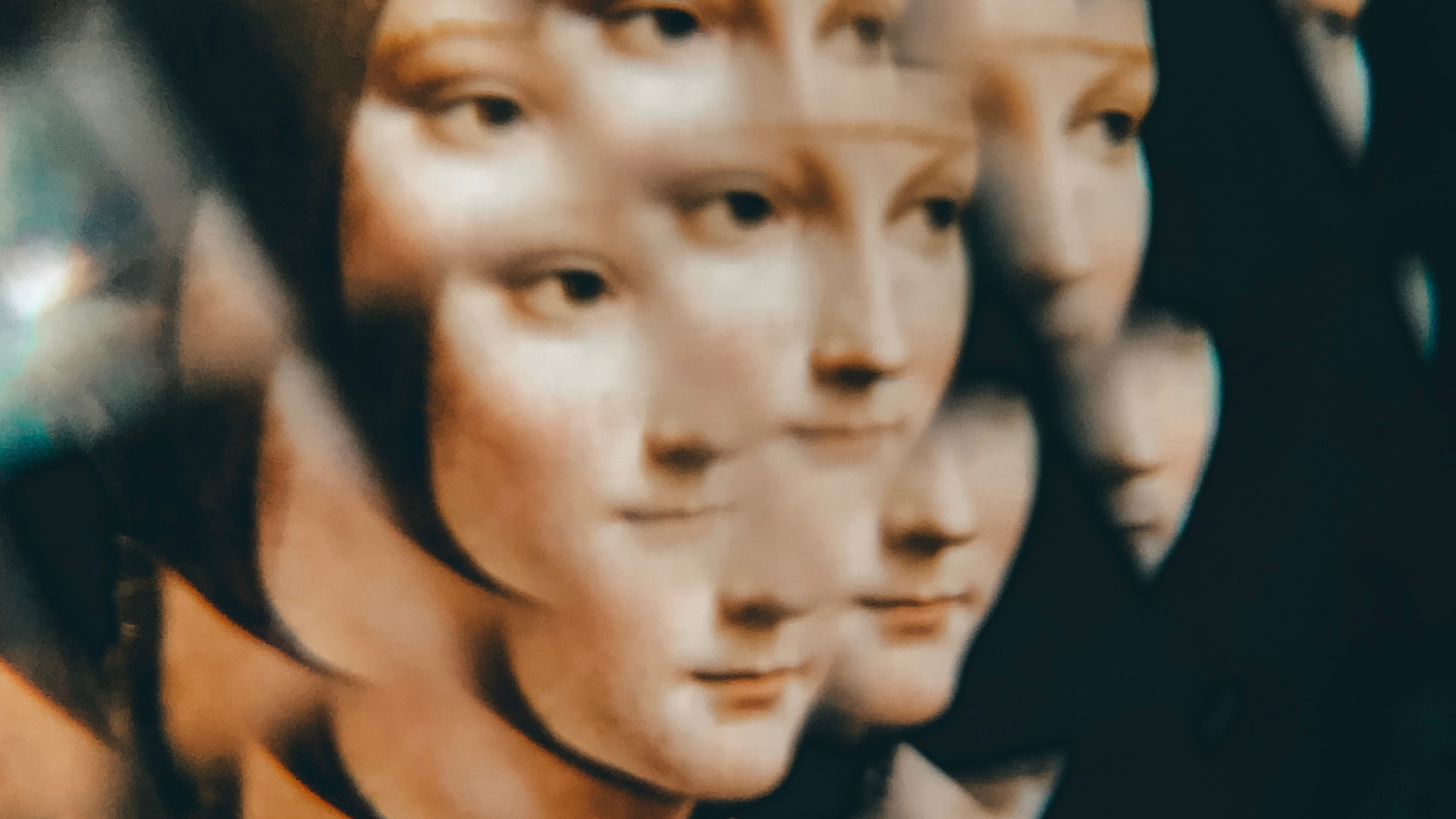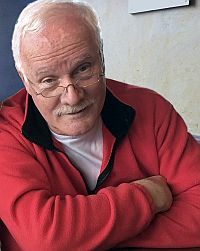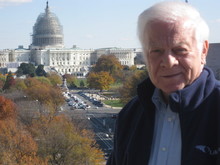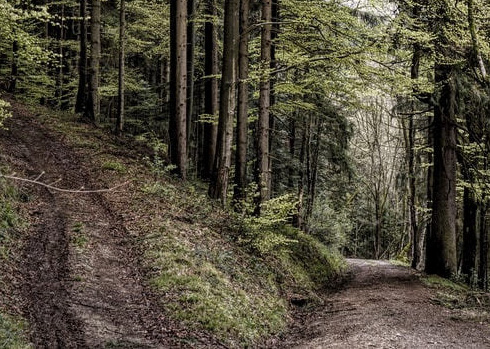We explore Jung’s concepts of narcissism and its appearance in the ‘as-if’ personality who struggles to connect to self and others. Intimacy is compromised, wanted yet feared. Although the person appears enticing and confident, the inner life is marked by perfectionism, emotional distance and dissociation. Through dreams and composite people examples, we explore why these people are in our lives and where in our psyche we are in the throes of narcissism rather than self-love. We will consider unfinished areas of the personality originating from early trauma, emotional neglect, and negative parental complexes adversely affecting confidence. Such areas promote idealization of others and destroy initiative while feeding an internalized cycle of self-hatred, oppression and envy. How can we accept life with its creative as well as aging process and find self-love?
Season: Spring 2020
The Myth of Narcissus
We first explore the make-up of the puella/puer, that archetype of perennial youth prevalent in the Western world. The intense energy and appeal of the puella/puer often masks a more fragile personality, unrealistic, fantasy driven, easily dissembled, immature and untouched. This person lives an ‘as-if’ life, blocked by a persona adaptation from accessing basic instincts. Jungian psychology is founded on the recognition that the splits in the psyche face us with questions of how we relate to otherness both within and without. Looking into the mirror as Narcissus does, we find ourselves, sometimes with pleasure and sometimes with a touch of horror. Could this be me? This mirror holds the shadow that we encounter, as did Narcissus. Will we take his route? Will we ignore the feminine form of Echo? The experience of this myth, as enacted in the classical Jungian style, will take us down personal pathways and collective avenues. Discussion with the myth as template encourages a deepening into what we know and also have yet to discover about ourselves and relationship to others.
Integrity: The Dynamic Coming Together of Our Complexes – Seminar I
What is it that grabs and compels us unexpectedly, causing us to think and act in ways that don’t fit with how we see ourselves or how we want to be?
How can we deal with these impulses and obsessions, and how can we find a way to relate to them rather than trying in vain to shut them out?
How can this energy become a source of creative revitalization and enrichment for our lives going forward?
In this seminar, Bonnie McLean and Mark Girard will take turns exploring Jung’s discovery and understanding of autonomous complexes. We will consider his use of the association experiment, the components of complexes, their clues in images, dreams, sensations, thoughts, behaviors and relationships. Through play and discussion, we will look at the value of integrating these split off parts and how to nurture this individuation process.
Dates and Times
There will be two seminars meeting on the same day, if the minimum of 10 people sign up for each seminar. Please sign up for and plan to attend one of them.
- Seminar I: Sundays from 1:00 – 3:00 pm
- Seminar II: Sundays from 5:00 – 7:00 pm
Schedule
- Feb. 2, 2020 – Bonnie McLean
- Feb. 9, 2020 – Bonnie McLean
- Feb. 16, 2020 – Bonnie McLean
- Mar. 1, 2020 – Mark Girard
- Mar. 8, 2020 – Mark Girard
- Mar. 15, 2020 – Mark Girard
Cost
- 12 hours of seminar instruction: $195 (OFJ members: $185)
- Sorry, we are unable to offer refunds.
- Continuing Education Credits are available, with one hour of CE credit for each hour of attendance. CEUs will be available for purchase
,at a cost of $10, which will cover all CEUs earned over the six-session seminar.
Seminar Size
- Attendance is limited to 24 people – 12 people per session
- If the seminar is full, and you would like to be added to our waitlist, please write us at [email protected]. If you have any questions, please call 503-223-3080.
Required Reading
- None.
Integrity: The Dynamic Coming Together of Our Complexes – Seminar II
For a full description of this seminar, see the Integrity: The Dynamic Coming Together of Our Complexes – Seminar I page.
Soul Lost and Found
In the West, attention to spiritual and mental life originally was subsumed under the Care of Souls, like one full river of religious and psychological currents blended indistinguishably. The soul was tended under care of spiritual mentors within or pushing the boundaries of traditional religions. In the early 20th century, the river forked into two and depth psychology emerged as a separate discipline unfolding since in the proliferating schools of psychoanalysis. We will explore psyche, soul, spirit and the subversive persistence of soul as part of healing. Contra all announced certainties that we have entered a post-religious, even post-spiritual, era, recent decades show instead that soul concerns have infiltrated politics, fundamentalisms of all kinds, and work with the psyche. The soul refuses to be refused. People come to clinicians with an eye to soul as well as psyche because they feel their soul living has been lost. They seek aliveness from a deep place within that radiates outward to shared existence with others and links to something more, however various descriptions of that may be. What became two rivers that seemingly forked into separate directions, now flow towards each other into one again. We will explore this co-existing of psyche and soul currents. We need both facing our unconscious and our soul that dwells in our body, our psyche-soma, and links to collective life and to the meaningful, mysterious aliveness at the heart of life.
Soul, Psyche, Projection
In the early 20th century both Freud and Jung noted that projections of our deep emotions of fear and desire, our wishes for nurturance and ambitions for power ceased to be directed to the heavens and the God of various religious traditions. That human striving and loving fell out of the heavens. Where did all that energy go? Freud saw this as liberation from religious tradition and its restrictive thinking. What we need is “secular ministers of the soul” (Bettleheim 1982, 35). Jung referred to himself as “a psychiatrist (“doctor of soul”) (1963, 349). The issue was not to get rid of religion but for people to see the link between sacred images of religions and “equivalent images lying dormant in their own unconscious….to facilitate this inner vision we must first clear the way for the faculty of seeing…making contact with the psyche.”(CW12 12). Both retained the idea of soul, and added the necessity of psyche. Projection is as basic to psyche as breathing is to the body. We will explore in lecture and discussion six meanings of projection, drawing on selected psychoanalytic theorists emphasizing Jung’s distinct contributions to understanding dissolution and integration of projection of personal material, and how projections of archetypal material must find a collective location.
Featured Streaming Lecture
This spring and summer we’ll be sharing with you a monthly selection from OFJ’s 45+ year collection of our past programs. We hope you’ll find them timely and resonant.
Jerry Ruhl – Living in the Fire: The Wisdom of Uncertainty
December 8, 2017
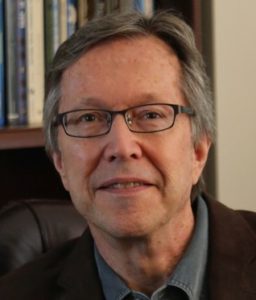 Jerry Ruhl, Ph.D., reminds us that Jung most felt the presence of god in his life when things did not go his way, when his ego’s agenda was interrupted with uncertainty or change and the ensuing feelings of anxiety. Those were the moments he sat up and paid attention because he knew he was being called to something deeper. Ruhl walks us through the uncomfortable yet ultimately hopeful equation of “change = uncertainty = life.”
Jerry Ruhl, Ph.D., reminds us that Jung most felt the presence of god in his life when things did not go his way, when his ego’s agenda was interrupted with uncertainty or change and the ensuing feelings of anxiety. Those were the moments he sat up and paid attention because he knew he was being called to something deeper. Ruhl walks us through the uncomfortable yet ultimately hopeful equation of “change = uncertainty = life.”Click here to read more about Jerry Ruhl.
Click here to listen to lecture.
Featured Streaming Lecture – May 2020
This spring and summer we’ll be sharing with you a monthly selection from OFJ’s 45+ year collection of our past programs. We hope you’ll find them timely and resonant.
Gary Sparks – Carl Jung’s Red Book: Healing the Chaos
lecture given February 15, 2019
Gary Sparks, M.Div., in his first appearance with OFJ, brought insight and clarity to the dense and sometimes baffling imagery of The Red Book, underscoring Jung’s later observation that “(t)he years of which I have spoken to you, when I pursued the inner images, were the most important time of my life. Everything else is to be derived from this. . . .” Within the context of the Red Book, Sparks speaks of Jung’s discovery of humanity’s passion for catastrophe, and how, even if we fall apart, there is something within us that knows how to put us back together.
This Incomprehensible Moment: A Depth Psychology Perspective
Did you miss it? Want to see it again?
Recording now available — click here to register and view
Note: The recording starts with 7 minutes of music — listen, if you wish, or skip ahead to minute marker 7:00 for the start of the program.
Program given Friday, June 19, 7:00 – 8:15 pm Pacific Time (US and Canada)
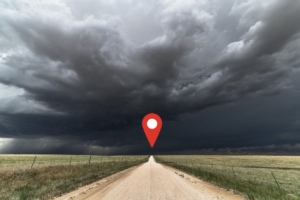 As the COVID pandemic, economic uncertainties, and protests for racial justice touch us all, OFJ remains dedicated to providing relevant insights from a depth psychological perspective.
As the COVID pandemic, economic uncertainties, and protests for racial justice touch us all, OFJ remains dedicated to providing relevant insights from a depth psychological perspective.
On Friday, June 19th, we invite you to join a free Zoom webinar, as Pacific Northwest Jungian analysts Cara Barker, Dunbar Carpenter, and Robert Stuckey reflect on how we may more consciously meet this moment of global health, economic, and social upheaval.
Our three analysts will share their perspectives and answer questions. This special event is sponsored by the Oregon Friends of Jung, and offered free to our members as well as the wider community. We invite you to forward the Zoom link to friends and colleagues.
We have a capacity of 500 for this event. We don’t know how many to expect, but with a timely topic, 300+ members, and an expansive subscriber list, we suggest registering soon, and signing into the event by 6:55 PM.
Click here to register and view the recording of this free webinar.
Featured Streaming Lecture – June 2020
This spring and summer we’ll be sharing with you a monthly selection from OFJ’s 45+ year collection of our past programs. We hope you’ll find them timely and resonant.
James Hollis – The Personal Myth in Turbulent Times
lecture given January 15, 2016
Member Cathy McGuire has suggested this timely James Hollis lecture. Says Cathy, “I’m always looking for commentary and advice that is both realistic and still gives hope in these times. Dr. Hollis provides this, and also explains the compelling insights of Jung in a way that I can use in daily life.” James Hollis is a longtime friend of Oregon Friends of Jung, presenting on numerous occasions, and will be back for our Spring program in 2021. Click here to read more about James Hollis.
Featured Streaming Lecture – July 2020
This spring and summer we’ll be sharing with you a monthly selection from OFJ’s 45+ year collection of our past programs. We hope you’ll find them timely and resonant.
Samuel Kimbles – Between the World and Me: Where the Wild Things Live
lecture given November 8, 2019
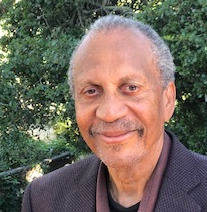
Our historical moment has us unconsciously living out the reality of a split between the psyche (personal) and the sociopolitical world. We locate emotional suffering in the individual and his/her immediate relationships, dismissing social context to a ‘mere’ backdrop and diminishing its major contribution to our psychological health. With such a perspective we lose the opportunity to create and use the potential space in cultural life for engaging and processing the most pressing problems of our times: racism, sexism, gender, poverty, class social justice, and the traumatogenic environment of uncertainty, pain and suffering they create for all of us.
In this talk Sam Kimbles addresses a way of thinking and working with the kinds of issues that cut across the artificial divide between inner and outer. Two stories from literature serve as his springboards for this evening’s talk: Maurice Sendak, Where the Wild things Are; and Ta-Nehisi Coates, Between the World and Me. He uses these texts to look at destructive attitudes in our culture that reflect issues that challenge us all. Click here to read more about Samuel Kimbles.
The Racial Complex: From Devious Path to Healing Journey
![]()
Zoom Webinar
Aug 16, 1:00-2:30pm PDT
Free to 2019/20 and 2020/21 OFJ members
$20 general admission
Register/Purchase
CEUs are NOT available – we will resume in September with regular season events
In her new book, The Racial Complex: A Jungian Perspective on Culture and Race, Jungian analyst, author, and poet Fanny Brewster writes boldly about the racial complex we all carry, individually and as a culture.
C.G. Jung said that our psychological complexes are like devious paths that often lead us astray. As we encounter the constellation of racial complexes on both individual and collective levels we find ourselves seeking ways of healing.
In this special program with Dr. Brewster, twice before presenter at Oregon Friends of Jung, the conversation will focus on identifying features of the racial complex and how we can find deeper understanding towards psychological healing. Dr. Brewster will offer opening remarks and insights and then invite questions and conversation.
